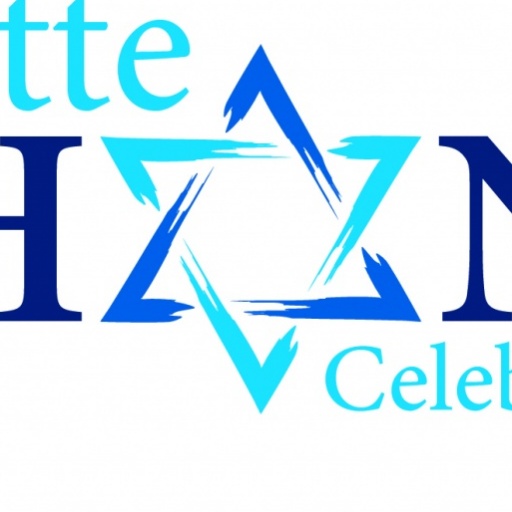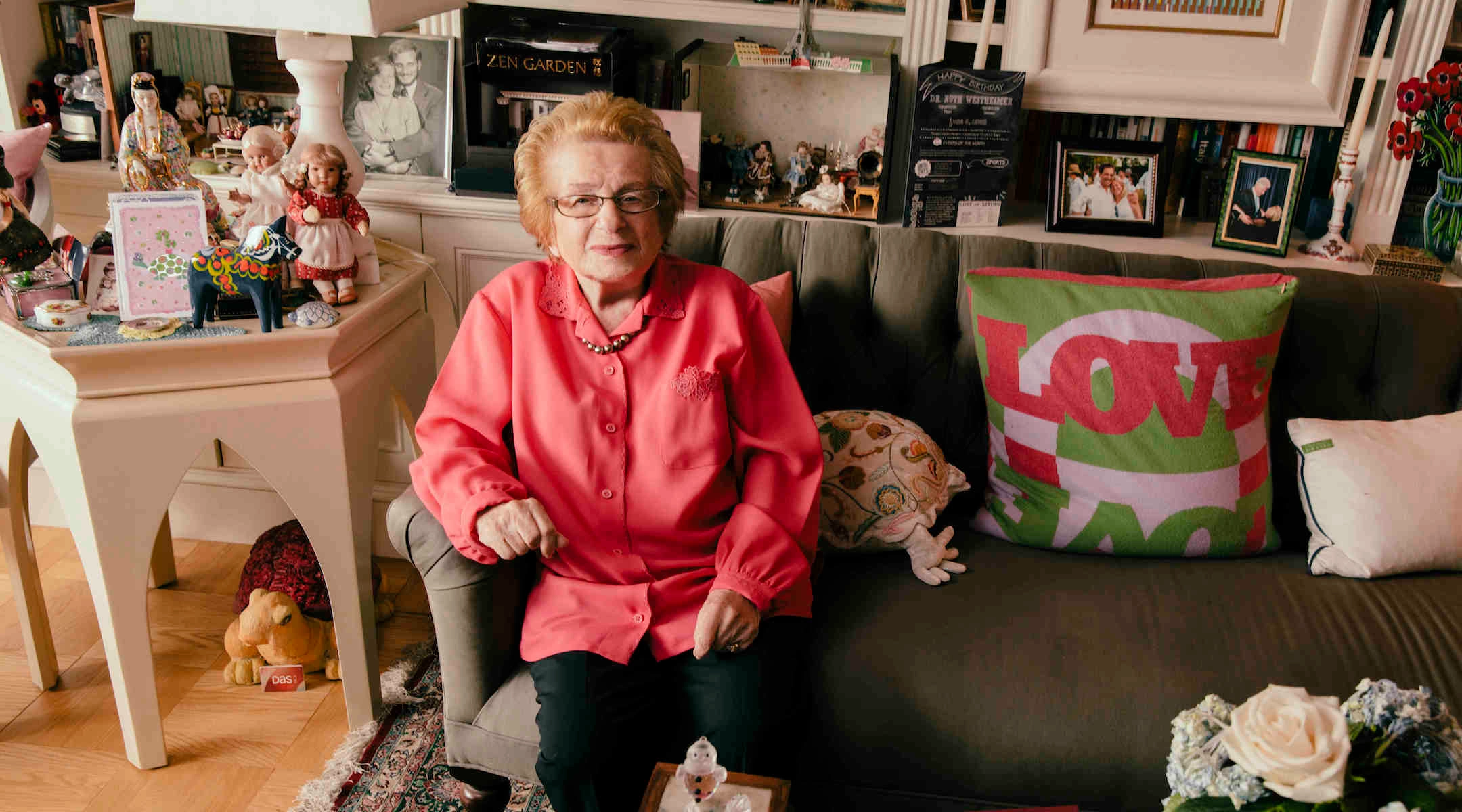By Andrew Silow-Carroll, Curt Schleier
(JTA) — July 13, 2024
Ruth Westheimer, the diminutive Holocaust survivor and Israeli military veteran who charmed and educated millions of listeners as the taboo-breaking radio sex therapist “Dr. Ruth,” died on Friday at her home in Manhattan. She was 96.
Her program, “Sexually Speaking,’” which launched in 1980 on the now defunct WYNY-FM, broke broadcasting taboos about talking about sex and helped make her the most famous sex therapist in the world — albeit one with a motherly demeanor and thick German accent.
She was a firm believer in sex as healthy dialogue among consenting partners, in which each indulged and appreciated the other’s needs and quirks. She also emphasized psychology over biology. “When it comes to sex, the most important six inches are the ones between the ears,” she once famously said.
In her book 1995 book “Heavenly Sex: Sexuality in the Jewish Tradition,” written with Jonathan Mark, she described sex as a mitzvah — or commandment — and also as positive act that Judaism did not consider shameful or base. In Jewish tradition, a healthy sex life is essential to “peace in the home,” she wrote, invoking a Hebrew phrase for domestic tranquility.
And yet, she acknowledged, there were limits — once telling an audience that the idea that a man should be able to last “for hours” during sex was a myth. “No woman that I know of wants that,” she said. “She has other things to do!”
Karola Ruth Siegel was born in Germany in 1928, the only daughter of Orthodox Jews. She was 10 years old the last time she saw her father — from her apartment window as he was arrested by Nazis. It was November 1938, the day after Kristallnacht, and his detention was a clear portent of what awaited the country’s Jews. Shortly thereafter, her mother arranged for her to leave Germany for Switzerland as a member of a 300-strong Kindertransport. She never saw her parents again, and believes they perished at Auschwitz.
In Switzerland she was sent to an orphanage where, in the film, Westheimer says the Jewish children were treated like second-class citizens, forced to take care of the Swiss orphans and do housekeeping. Still, she says, the Swiss saved her life.
“I have wonderful memories of the Swiss,” she said. “Otherwise I would not be alive. I have only one complaint: Girls couldn’t go to high school. They made all the girls get household helper diplomas, so I spent two years learning how to be a housemaid. Luckily for me I didn’t have to use it.”
At war’s end, she immigrated to then-Palestine, lived on a kibbutz and joined the Haganah, the precursor to the Israel Defense Forces. Westheimer trained as a scout — and also a sniper. She never shot anyone, but was severely wounded by an artillery shell during the War for Independence in 1948.
She moved to Paris with her first husband, to New York with her second. She has earned degrees in psychology (Sorbonne), a master’s in sociology (from the New School) and a doctorate in education from Teacher’s College at Columbia University. She married her third husband, Manfred Westheimer, in 1961, and they were together until his death in 1997.
Westheimer says her career as a sex therapist was an accident. She was teaching public health at Columbia when the funding for her program ran out.
“I needed a part-time job while my children were growing up, and I was offered a position doing research for Planned Parenthood and I thought, all these people, all they do is talk about sex,” she said.
Fascinated, she did postdoctoral work with the noted sex therapist Helen Singer Kaplan and taught at various colleges until she was hired by a local radio station for a 15-minute show that aired at midnight Sundays — a time when it was presumably safer to discuss contraception and orgasms.
The show took off, and in relatively short order she became a star. From 1984 into the early ’90s, Westheimer hosted multiple cable TV shows on sex.
Speaking to a reporter following the release of “Ask Dr. Ruth,” a documentary made in 2019 when she was 91, the woman once described in a newspaper article as “the happy munchkin of sex” described what would have happened had her life taken a different turn during and after the Holocaust.
“If I would have stayed in Frankfurt in the Orthodox Jewish milieu, I don’t think I would have talked about orgasms and erections,” she said. “It’s very interesting. Because I was an orphan at a very early age, I was determined to speak up explicitly about things I believe in.”
Her life story is told in Mark St. Germain’s play “Becoming Dr. Ruth,” which has been performed regularly since he wrote a version in 2012. Among those who played her was Tovah Feldshuh, who starred in the off-Broadway production in 2021 at the Museum of Jewish Heritage in Lower Manhattan.
“I’m just sitting there at the edge of my seat and I don’t miss a word watching her,” Westheimer told the New York Jewish Week about watching Feldshuh in the play. “It is fantastic to see her being Dr. Ruth K. Westheimer, to see her dance, to see her describing my love affairs, to see her describing my marriages.”
Westheimer belonged to two synagogues, one in the Washington Heights neighborhood of Manhattan where she lived, the other nearby in the Bronx. She also occasionally attended services at Central Synagogue and at the Park East Synagogue, both in Manhattan.
She was an active supporter of the Museum of Jewish Heritage, and the YM & YWHA of Washington Heights & Inwood. She was a fixture in Washington Heights and the Upper West Side, where she would often be seen sitting in the front row of Jewish events.
“The world feels a bit darker today with the loss of Ruth Westheimer,” Jack Kliger, CEO and president, and Bruce Ratner, chairman of the board, of the Museum of Jewish Heritage, said in a statement. As a board member since 2004, “she played an integral role in furthering our mission to educate, commemorate, and inspire future generations about the Holocaust and its lessons. Her commitment to preserving the memory of the Holocaust and ensuring that its history is never forgotten was unwavering.”
She is survived by her son, Joel Westheimer; her daughter, Miriam Westheimer; and four grandchildren.
She wrote close to 30 books, including “Roller Coaster Grandma,” a graphic novel-style autobiography for 8- to 12-year-olds that talks about her experiences during the Holocaust. In one section, she recalls taking two of her grandchildren to an amusement park, where they all rode on the roller coaster. Well, not all: Dr. Ruth was too short.


